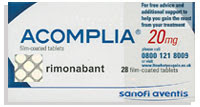The Peter Principle- Why there are so many idiots in the corporate ladder
So I was reading about the resurgence of the Peter Principle recently. The Peter Principle was first satired by 2 authors 40 years ago that employees are being promoted when they perform well at work. After a while, they reach a level in which their competencies expire and they stick it out at that level. In time to come, every position is a 'stuck' position, thereby effectively rendering every employee at every level incompetent.
The revisitation of this principle is obviously due to the current economic crisis, where fiscal complexities of such multitude has been so imcompetently managed. Makes me wonder exactly how many idiots are out there running a show that they have absolutely no clue about.
We don't have to look beyond our office walls to discover such idiocy. I see lots of such people dashing from meeting room to meeting room all day long, with the age old complain- no time, no time. I wonder what kind of output they actually achieve being in meetings, yak yak yakking away at things they have no clue about.
Take the head of sales who berates the rep for being a lousy sales person but negotiates prices with customers that falls below the cost price of the product (i swear it happened!), the sales director who hounds the reps relentlessly to deliver the sales every monday morning in the loudest piercing decibel but yet is meek and speechless when faced with a live customer, or that product manager who promises the most expansive and integrative campaign but knows nothing about planning contingencies or the marketing manager who cannot even define a 'value proposition'. I have seen and worked with them all and I continue to witness such imcompetence on an unprecedented scale all the time. I am not impressed, but cest la vie..the Peter Principle wouldn't have lived on for 40 years without them.


















